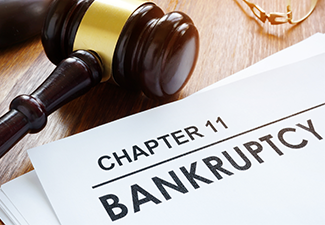Tax Issues: Which Bankruptcy Chapter to Choose
Feb. 21, 2023
 When individuals face financial difficulties, they should consider all their options before deciding to declare bankruptcy. Filing for bankruptcy can affect your finances and credit score for several years, but it can also provide much-needed relief and put you on the right path for future stability. However, if you’re thinking about bankruptcy to address tax debts, there are a few things you should know before you get started. To speak with a bankruptcy attorney about your options, reach out to me, Steven C. Frazier, Attorney At Law, today. My offices are in Kingsport, Tennessee, where I can serve clients throughout the area, including Church Hill, Johnson City, Bristol, or anywhere in Northeastern Tennessee.
When individuals face financial difficulties, they should consider all their options before deciding to declare bankruptcy. Filing for bankruptcy can affect your finances and credit score for several years, but it can also provide much-needed relief and put you on the right path for future stability. However, if you’re thinking about bankruptcy to address tax debts, there are a few things you should know before you get started. To speak with a bankruptcy attorney about your options, reach out to me, Steven C. Frazier, Attorney At Law, today. My offices are in Kingsport, Tennessee, where I can serve clients throughout the area, including Church Hill, Johnson City, Bristol, or anywhere in Northeastern Tennessee.
Tax Issues During a Bankruptcy Case
Anytime you’re considering bankruptcy, you need to have a clear idea of which debts are dischargeable and which aren’t. In general, all consumer debt like credit cards, medical debts, car loans, personal loans, utility bills, or back rent is considered discharge debt (meaning it can eventually be wiped out). Other debts like student loans, domestic support obligations, and most taxes are considered nondischargeable, meaning you’ll still be responsible for paying them after your bankruptcy filing is complete.
Pros and Cons of Each Bankruptcy Chapter
Chapter 7 is often called “liquidation” bankruptcy because it requires you to liquidate (sell) any nonexempt assets to pay off creditors before any eligible debt can be discharged. Chapter 7 bankruptcy is a popular option for individuals without a lot of wealth or assets since the vast majority of the time their assets will be exempt from liquidation. However, if you make over a certain amount of income, you may not qualify.
Chapter 11, also called “reorganization” bankruptcy, is used primarily by businesses and allows them to stay operational. To do this, they must agree to a repayment plan with their existing creditors, and it requires them to reorganize, which often means considerable downsizing. However, after successfully completing the repayment plan (usually for five years), any remaining eligible debt will be discharged. This is a good option for companies that are still able to turn a profit during bankruptcy and would stand to lose more by simply selling.
Chapter 12 requires the individual to create a repayment plan with their creditors, but it’s reserved specifically for farmers or fishermen.
Chapter 13 is another option for individuals who don’t want to liquidate their assets or have too high of an income for chapter 7. Chapter 13 is also called “wage earners” bankruptcy and requires the individual to create a repayment plan (typically for three to five years) to address their debt. After the repayment period is over, any remaining dischargeable debt will be wiped out.
Taxes that Can Be Eliminated from Bankruptcy
In the majority of cases, the tax debt cannot be eliminated through bankruptcy, but there are a couple of exceptions. For example, if any past income taxes can be categorized as “nonpriority,” it means that they won’t have to be paid back upfront and can, instead, be included in your repayment plan. This generally only applies to taxes on income of gross receipts that are over three years old. After your repayment period is complete, any remaining nonpriority debt will be discharged, including the back taxes.
Taxes that Cannot Be Eliminated from Bankruptcy
Almost all other tax debt is considered “priority” and, therefore, must be paid in full and cannot be discharged. This includes any collected sales tax from customers, tax penalties, trust fund taxes, employment taxes, tax liens, or property taxes.
How to Get Tax Help
The best thing you can do for yourself when faced with mounting debt that you can’t pay off is to meet with an experienced bankruptcy attorney. This is especially true if the tax debt is involved. By hiring a seasoned attorney, you’ll get personalized advice and an expert who can help you form a plan that’s realistic and effective.
Seek Trusted Legal Guidance
If you’re in the Kingsport, Tennessee area and would like to explore your options on filing for bankruptcy, contact me, Steven C. Frazier, Attorney At Law. I have the knowledge, practice, and loyalty to assist you toward the correct path involving bankruptcy matters.
